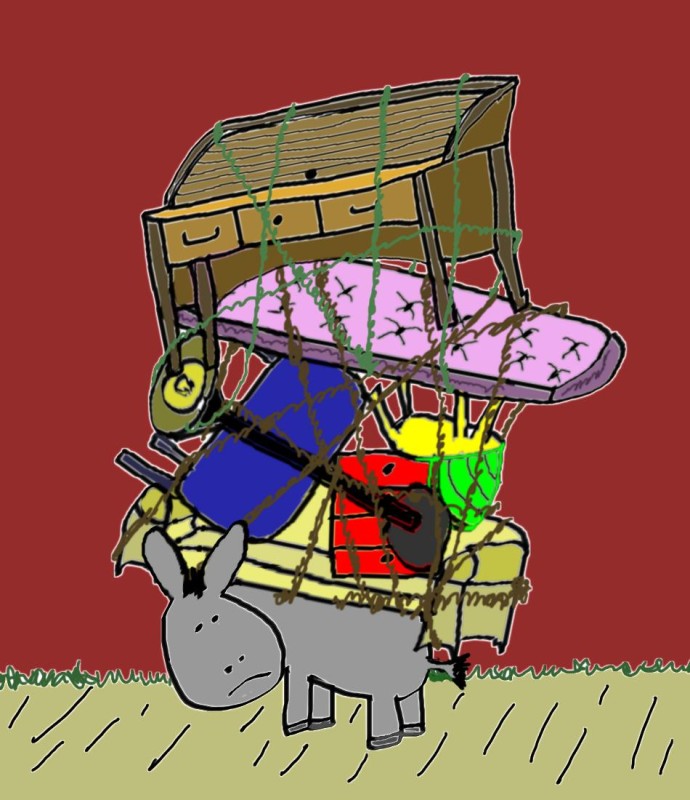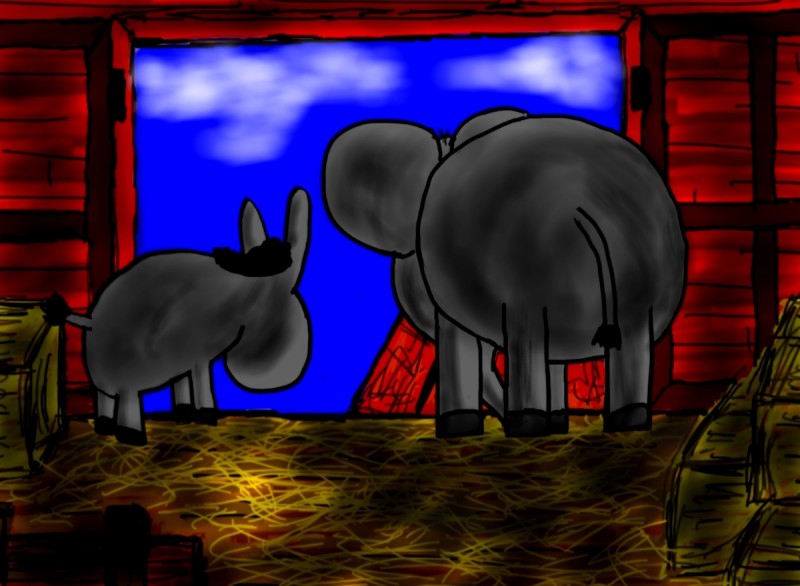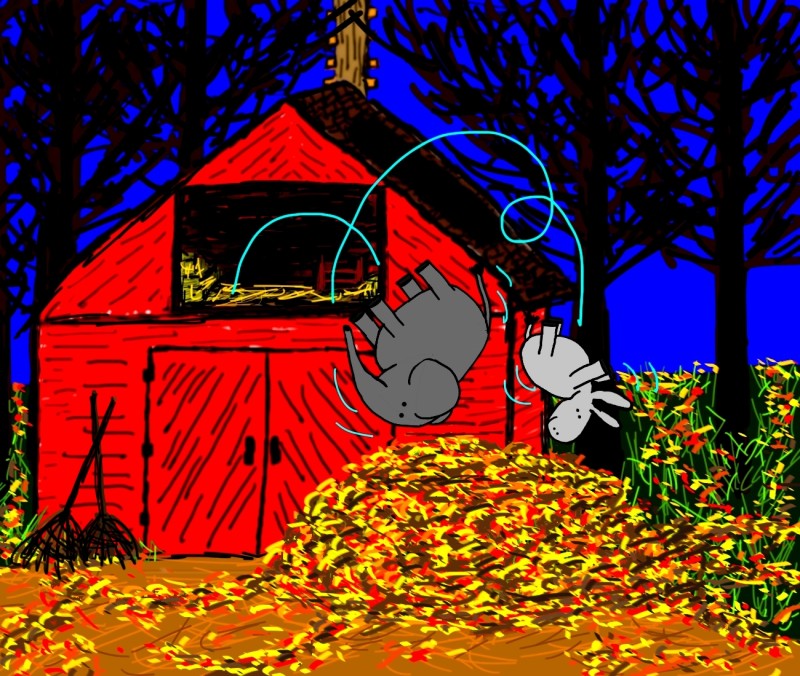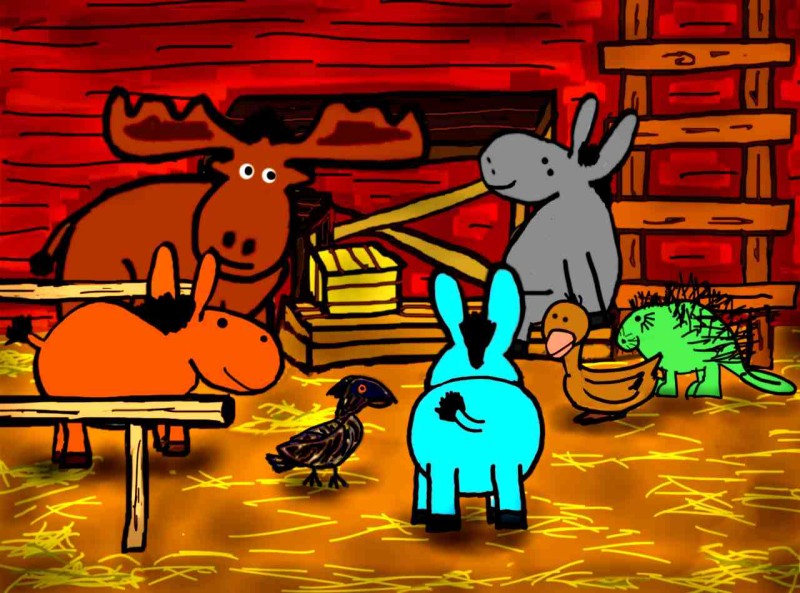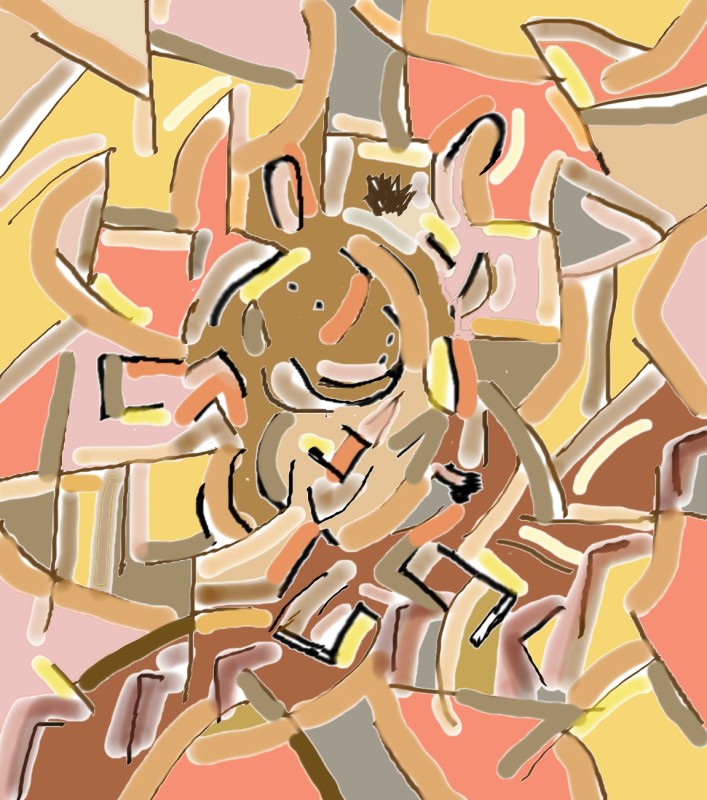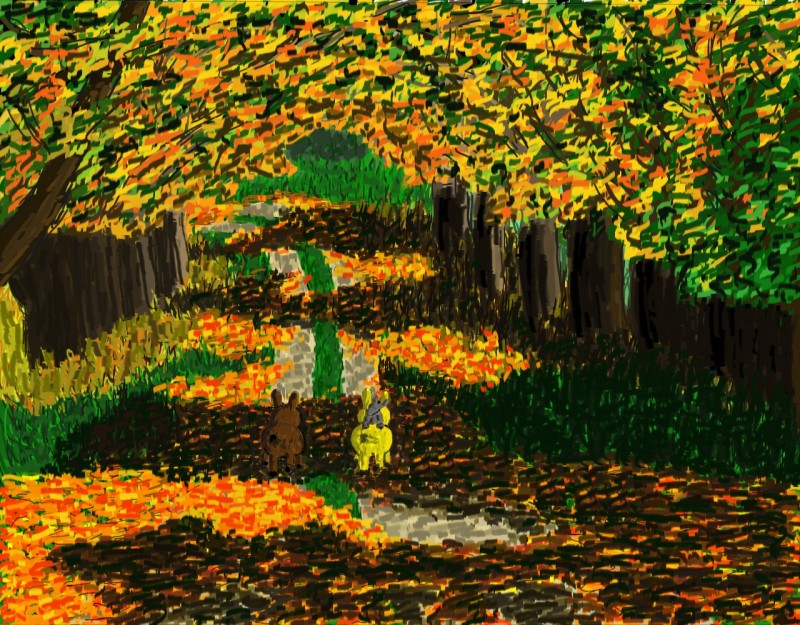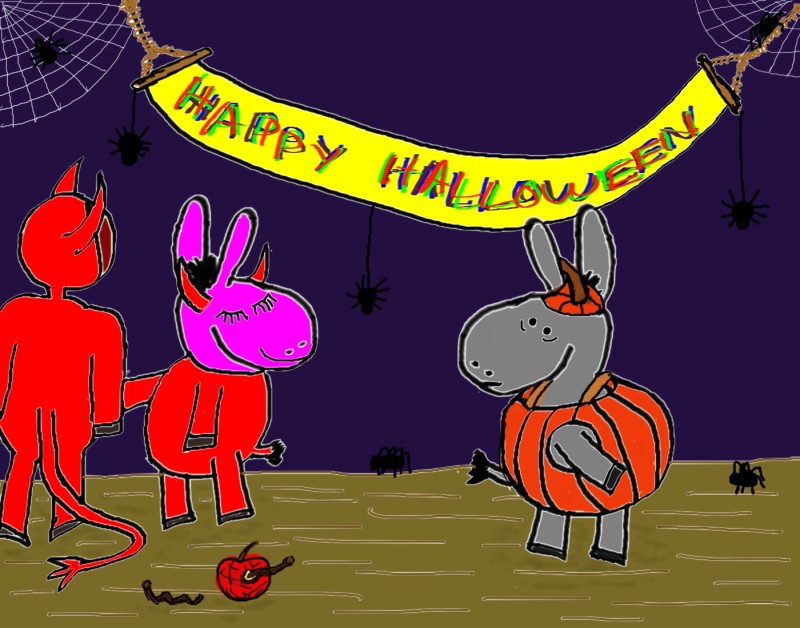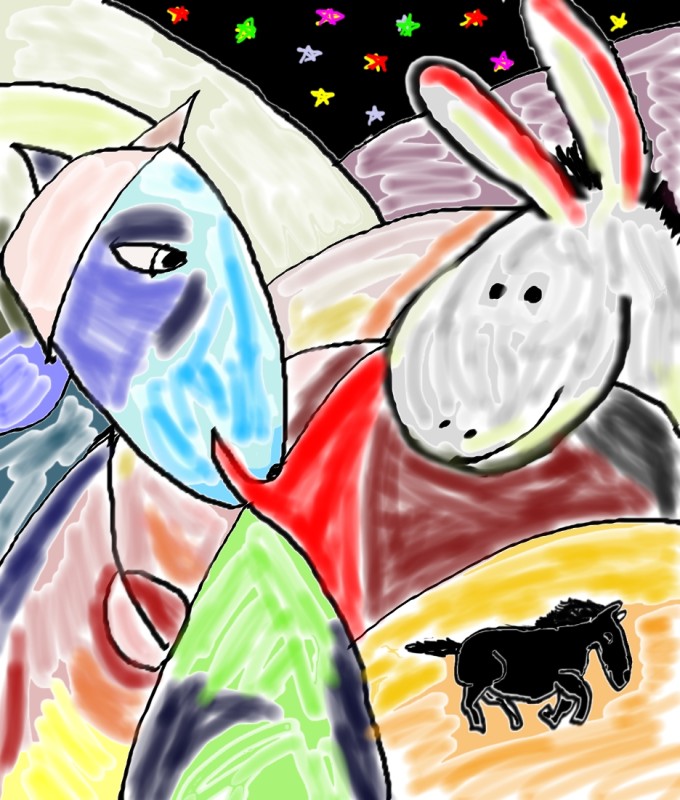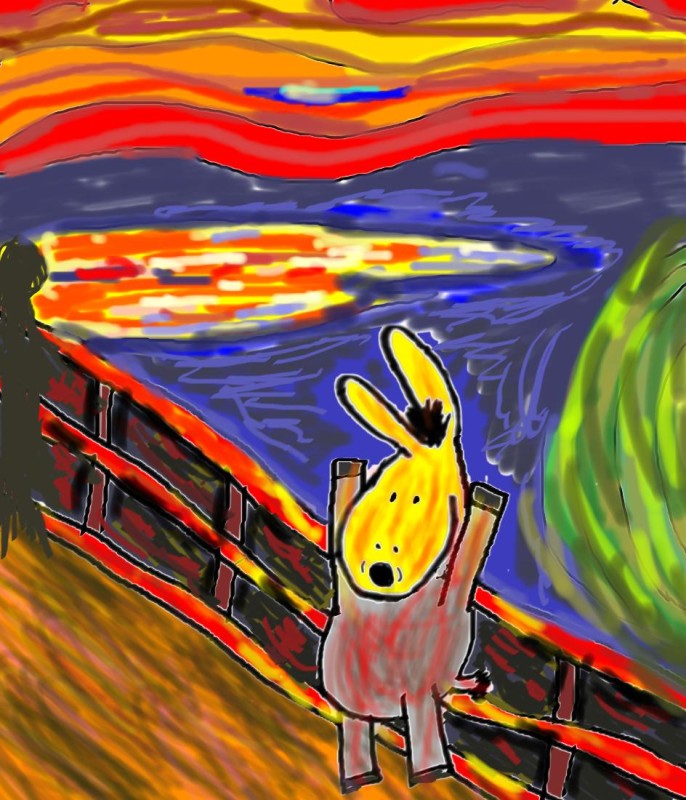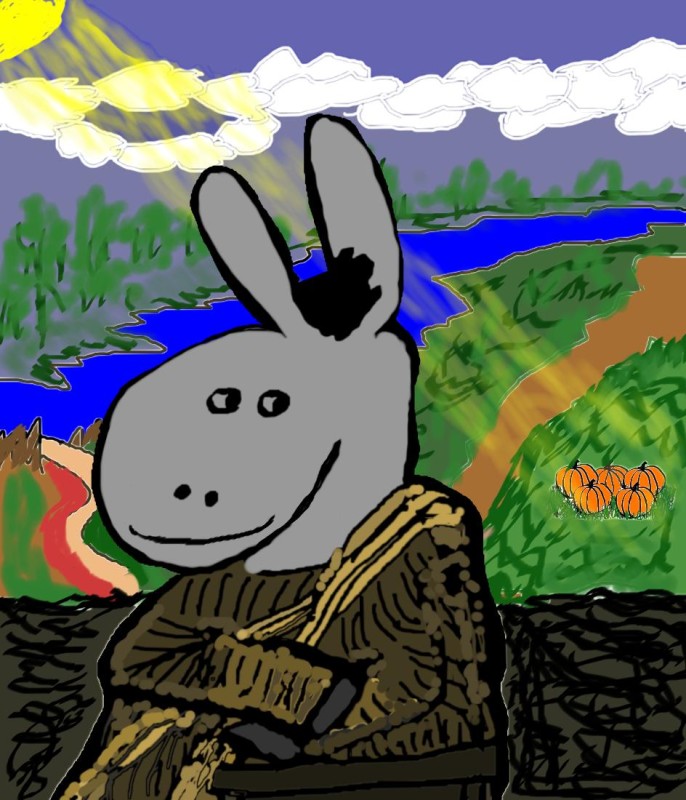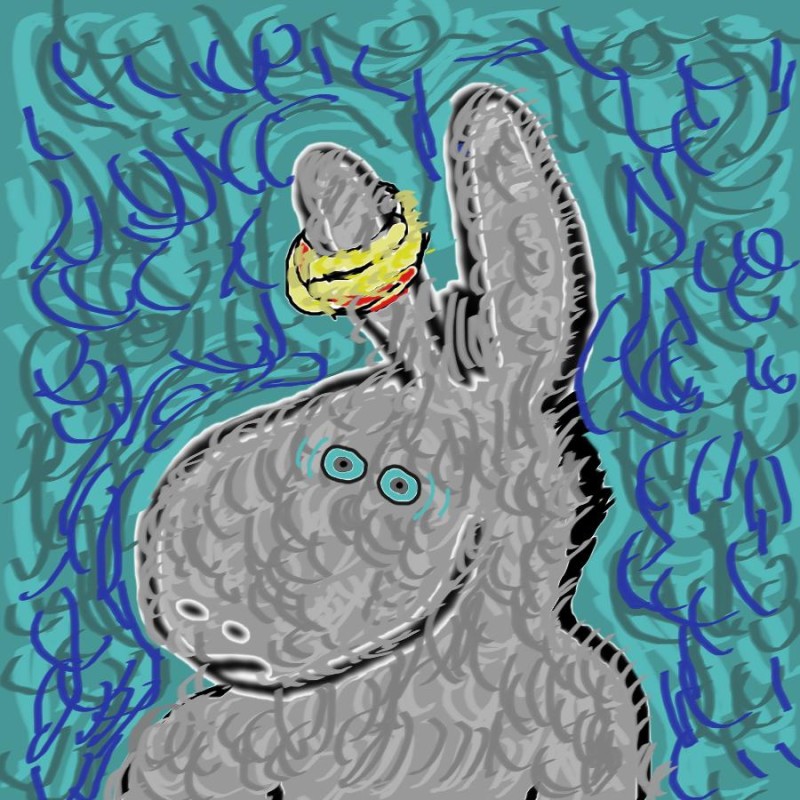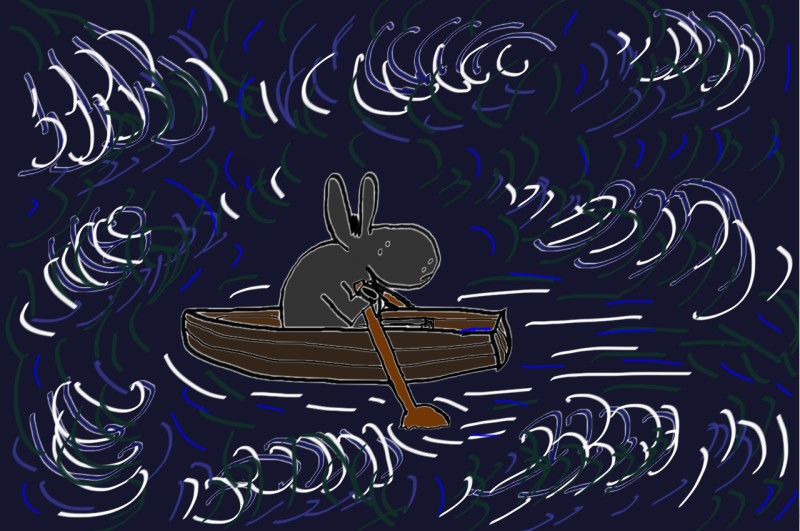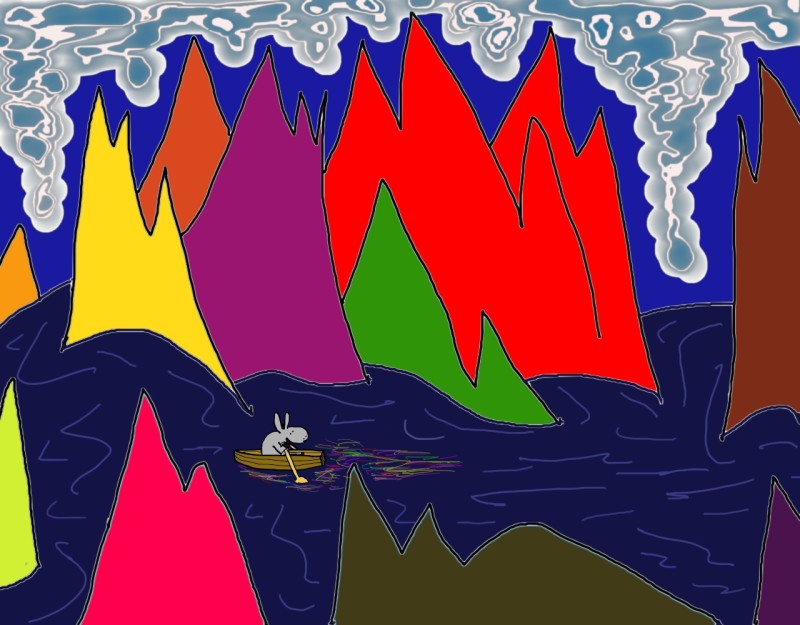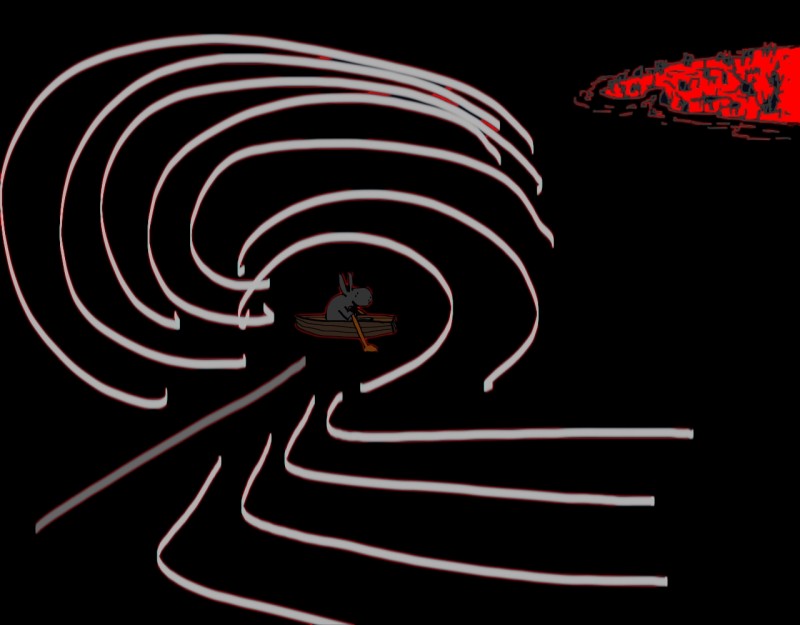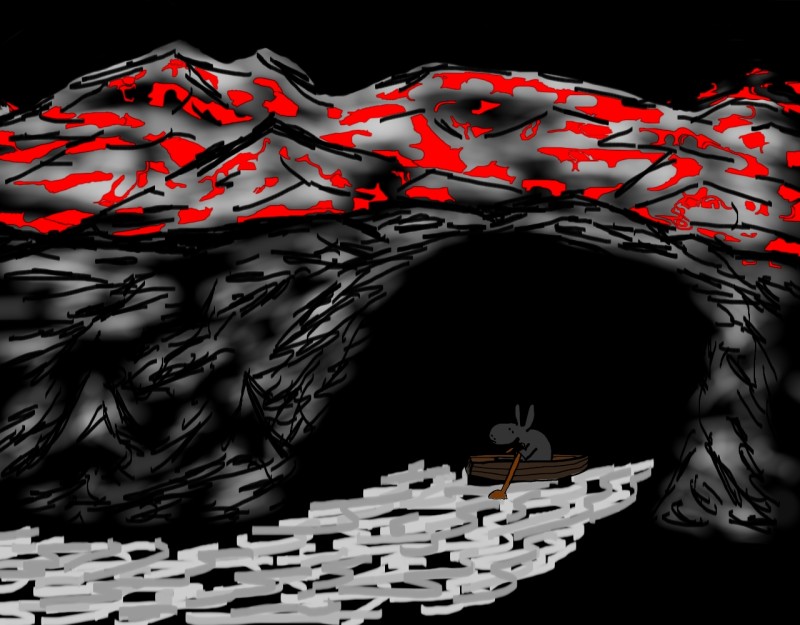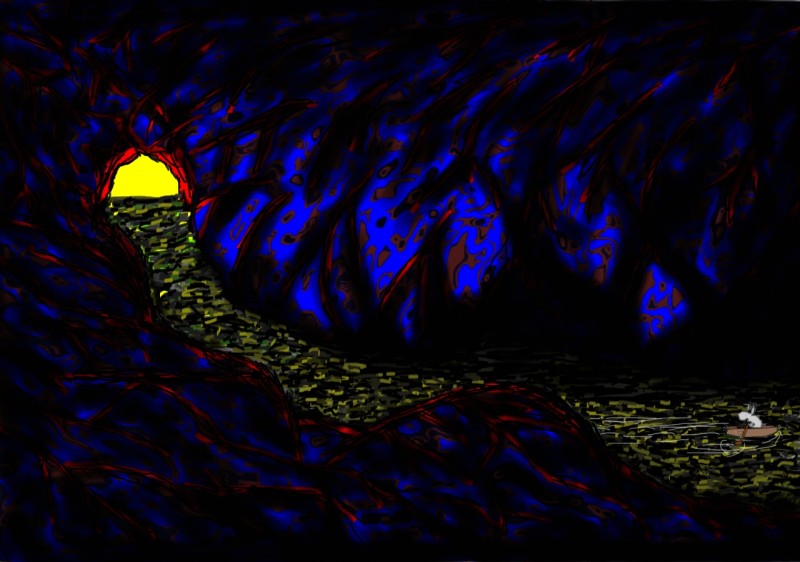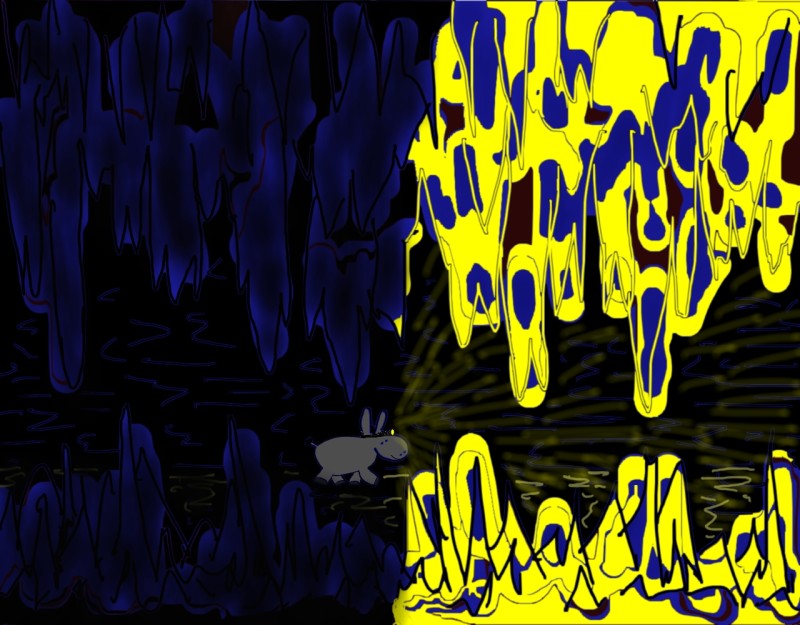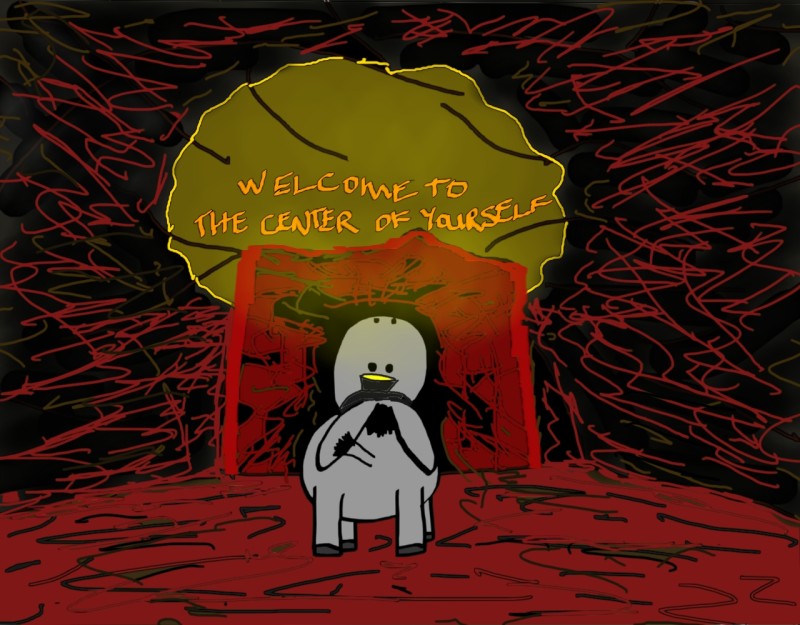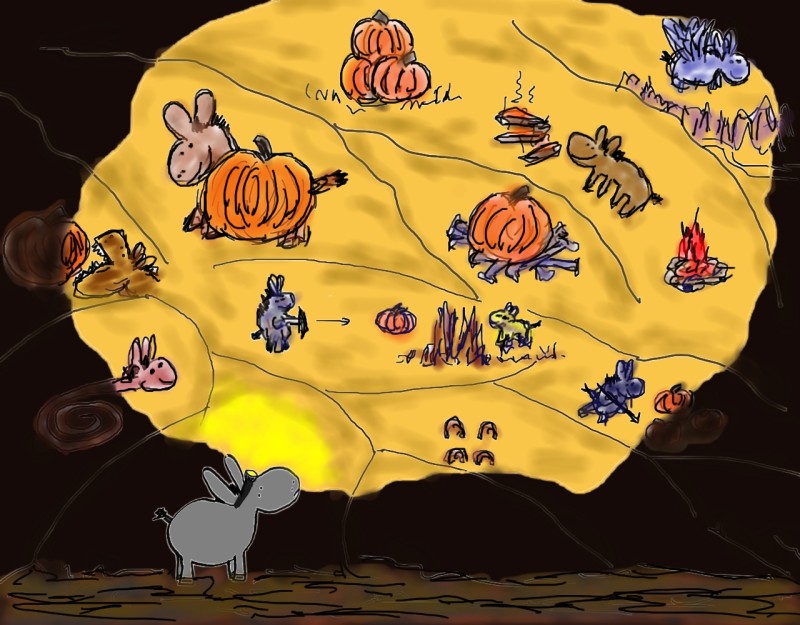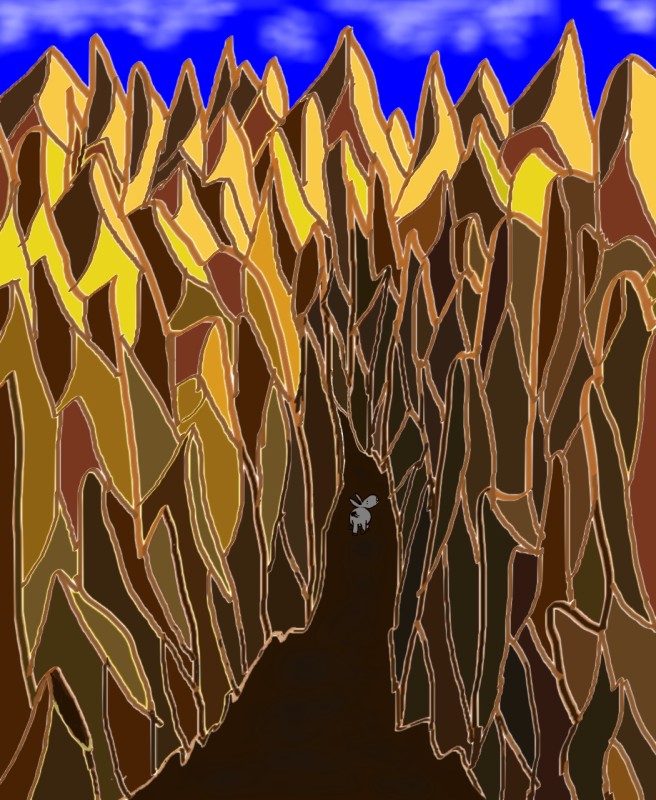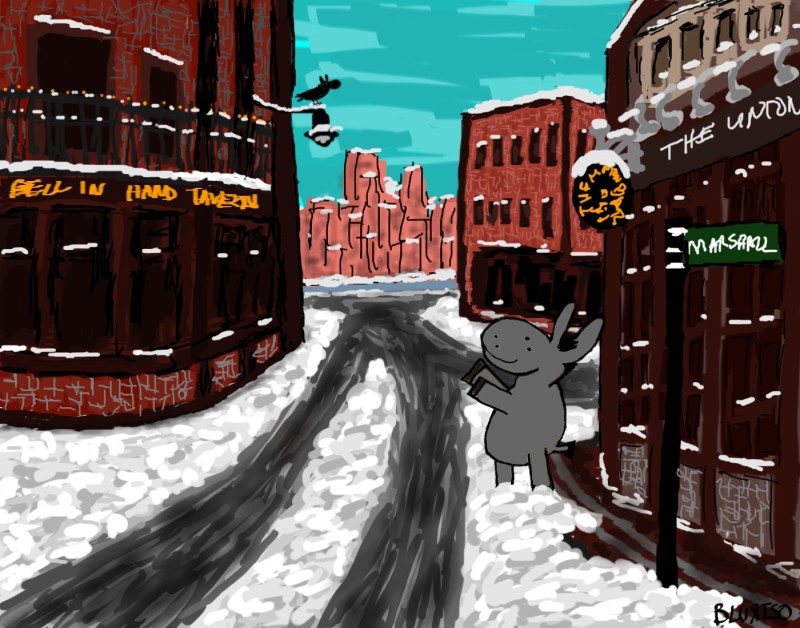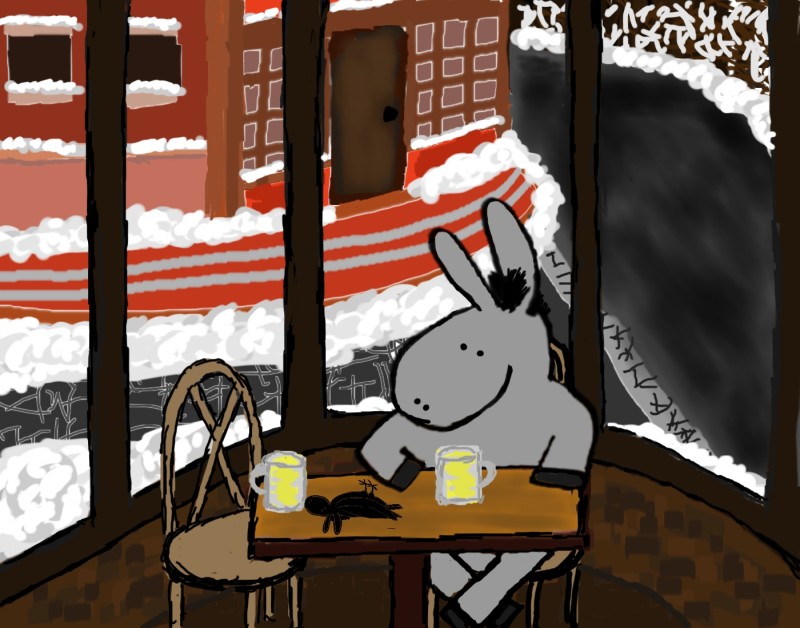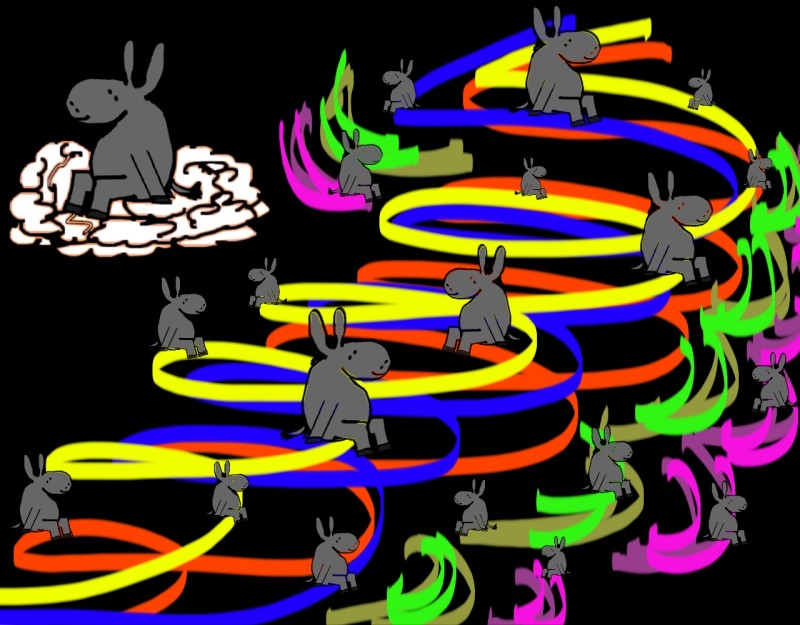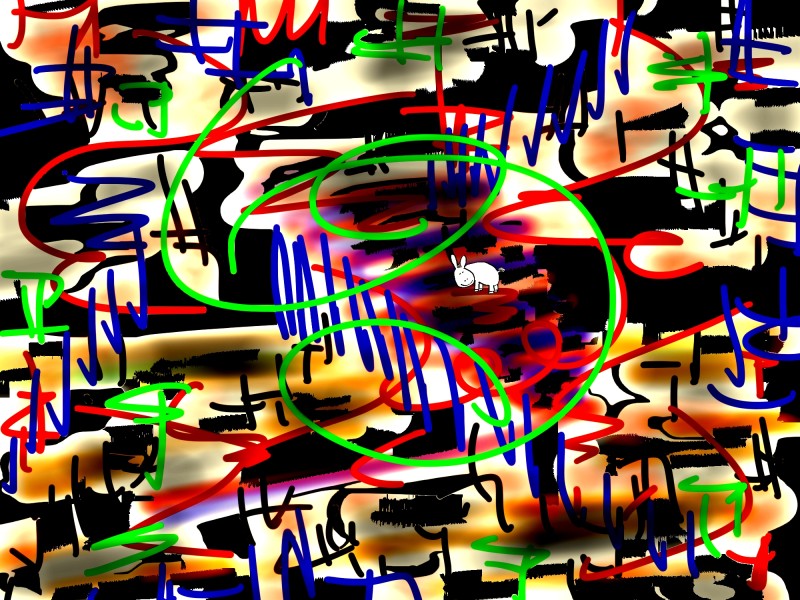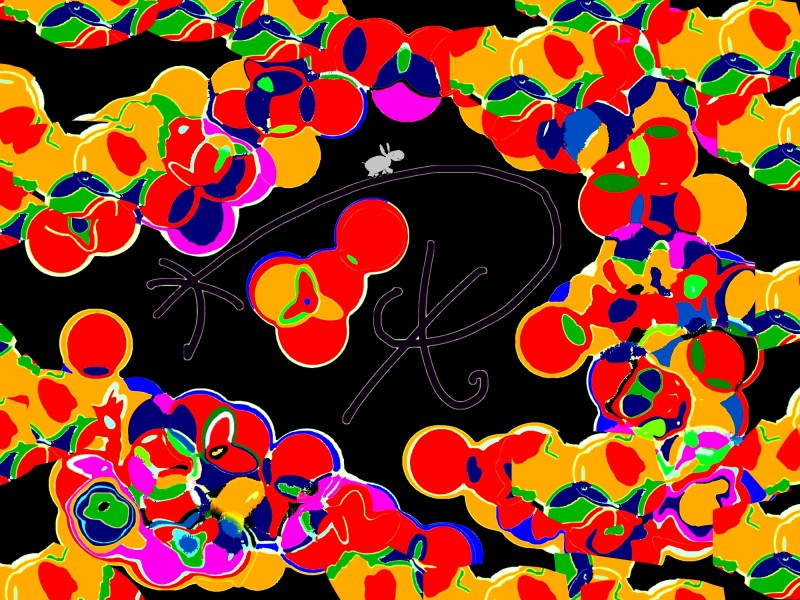Thanks so much, Blurtso, I only need
your help with a couple of things…
Tag: paintings
“Blurtso considers caring”
“Blurtso and Harlan rake the leaves”
“Weohryant University” (XXII) – What 101
The question for today’s class, said Blurtso, is: “What is the difference between sympathy and empathy?”
Sympathy and empathy? said Morton.
“Sympathy,” said Glouster, “is a relationship between persons or things wherein whatever affects one similarly affects the other.”
And empathy? said Chelsea.
“Empathy,” said Glouster, “is the capacity for experiencing as one’s own the feelings of another.”
That sounds like the same thing, said Frank.
Both words, said Glouster, come from the Greek word, “pathos,” meaning, “suffering, emotion, passion.” In Greek “sym” means “with” and “em” means “in.” So sympathy is “suffering with” another, while empathy is “suffering in” another.
I still don’t understand, said Morton.
Isn’t that the same as compassion? said Emma Lou.
“Compassion,” said Glouster, is “sorrow or pity aroused by the suffering of another.” It is derived from the Latin words “com” or “with” and “passion” or “suffering.”
So “compassion,” said Emma Lou, is the Latin equivalent of the Greek word “sympathy.”
Exactly, said Glouster.
That still doesn’t tell me, said Morton, the difference between sympathy and empathy.
Both words, said Glouster, imply a relationship, or “oneness” between the subject and object, between the “sympathizer” and the other.
Just like in the Upanishads, said Emma Lou, and the Tao Te Ching. Both books talk about the oneness of all things, that separation is just an illusion.
The gospel of Matthew, said Glouster, says “love your enemies.”
Does it say you and your enemies are one? said Emma Lou.
Not exactly, said Glouster, but it goes on to say, “I tell you, whatever you did for one of the least of these brothers and sisters of mine, you did for me.”
That’s pretty much the same thing, said Chelsea.
The gospel of John, said Glouster, says, “do unto others as you would have them do unto you.”
Isn’t that compassion? said Chelsea.
“Compassion,” said Emma Lou, is feeling someone else’s pain as your own. The way to do that is not to see others as separate from you.
One hundred fourteen of the one hundred fifteen verses of the Quran, said Frank, begin with “In the name of Allah the compassionate, the merciful…”
Ommmm, said moose.
What? said Glouster.
I think he said “Ommmm,” said Frank.
Ommmm (phonetically “aum”), said Emma Lou, is from the Upanishads, it is the monosyllable which contains all syllables and all sounds. It represents the oneness underlying multiplicity—the non-duality of “Brahman” beneath the dualism and illusion of “Maya.”
The illusion of Maya? said Morton.
The illusion that we are not all one, said Emma Lou.
So compassion, said Frank, is recognizing—beyond the illusion of separation—that we are all one?
Exactly, said Emma Lou.
I still don’t understand, said Morton, the difference between sympathy and empathy.
Think of it this way, said Glouster. When someone is suffering because of a specific situation, but you have not experienced that situation yourself, you can only sympathize with them, but if you have experienced that same situation, you can empathize.
That’s very confusing, said Chelsea.
Yes, said Morton, I feel exactly the same way.
